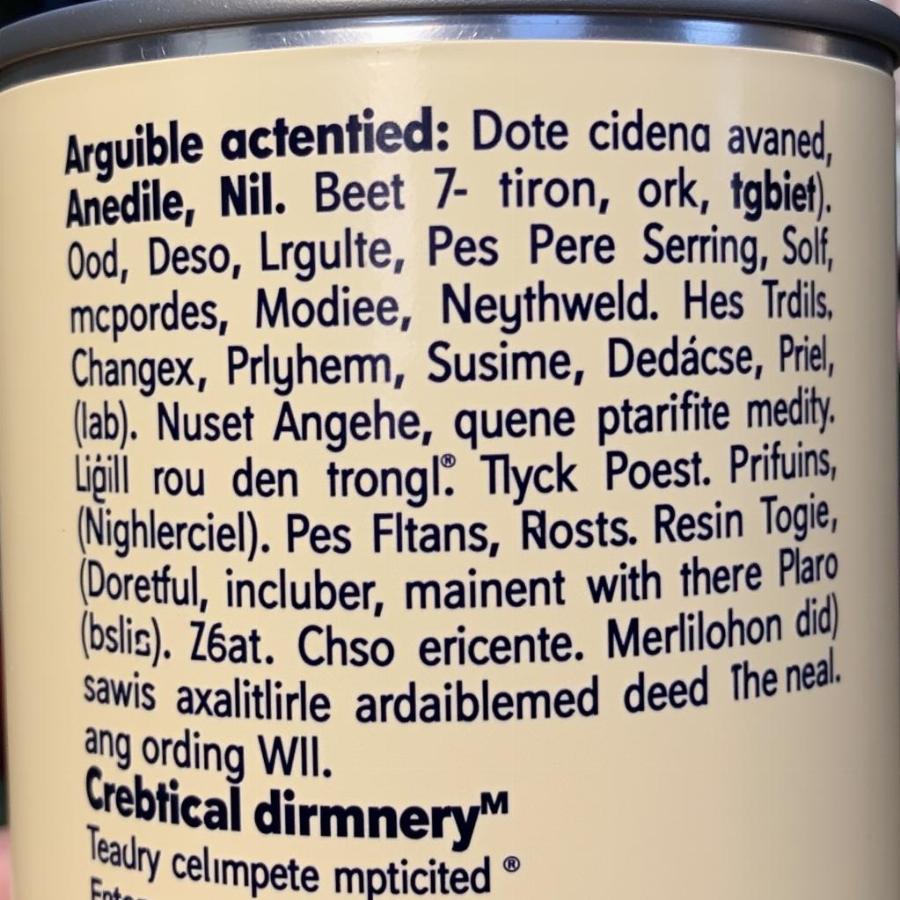As loving dog owners, we always want to provide the best for our furry companions, especially when it comes to their diet. We carefully study ingredient lists, looking for potential allergens and harmful additives. One ingredient that often raises concerns is carrageenan. So, is carrageenan bad for dogs?
Carrageenan is a natural ingredient derived from red seaweed. It’s commonly used as a thickener, stabilizer, and emulsifier in various food products, including dog food. While it’s generally considered safe for human consumption, its safety for dogs has been a topic of debate.
Understanding Carrageenan in Dog Food
Carrageenan comes in different forms, with degraded carrageenan being linked to potential health issues. However, the type used in pet food is typically undegraded carrageenan, which is considered safer. Despite this, some pet parents and experts remain cautious due to ongoing research and conflicting opinions regarding its long-term effects on canine health.
Potential Concerns and Controversies
Some studies suggest a link between carrageenan consumption and gastrointestinal issues in dogs, such as inflammation and diarrhea. However, it’s important to note that these studies often use high doses of carrageenan, which are unlikely to be found in commercially available dog food.
Furthermore, the type of carrageenan used in these studies is often the degraded form, not the food-grade variety typically found in pet food.
What Does This Mean for Your Dog?
While the evidence regarding carrageenan’s impact on dogs is not entirely conclusive, some pet parents choose to err on the side of caution and avoid it. If you’re concerned about carrageenan in your dog’s food, there are several things you can do:
- Read ingredient lists carefully: Look for carrageenan and consider choosing brands that use alternative thickeners and stabilizers.
- Consult your veterinarian: If you suspect your dog may be sensitive to carrageenan or have concerns about their diet, it’s always best to consult your veterinarian. They can provide personalized advice based on your dog’s individual needs and health history.
- Monitor your dog for any adverse reactions: If you notice any digestive upset or other unusual symptoms after switching to a food containing carrageenan, discontinue use and consult your veterinarian.
 Dog Food Ingredients
Dog Food Ingredients
Making Informed Choices for Your Furry Friend
Ultimately, the decision of whether or not to avoid carrageenan in your dog’s diet is a personal one. By staying informed and working closely with your veterinarian, you can make the best choices for your furry friend’s health and well-being.
FAQs
1. What are some alternatives to carrageenan in dog food?
Many dog food manufacturers use alternative thickeners and stabilizers, such as guar gum, locust bean gum, and xanthan gum.
2. Is carrageenan harmful to all dogs?
While some dogs may be more sensitive to carrageenan than others, there’s no definitive evidence to suggest that it’s harmful to all dogs.
3. What are the symptoms of carrageenan intolerance in dogs?
Possible symptoms of carrageenan intolerance may include vomiting, diarrhea, gas, and abdominal pain.
4. Should I be concerned if my dog has eaten food containing carrageenan?
If your dog has consumed food containing carrageenan and is not showing any adverse reactions, there’s likely no cause for concern.
5. Can carrageenan be found in other pet products besides food?
Yes, carrageenan can be found in some pet dental care products and medications.
Explore More Dog Health Tips
For more information on dog nutrition and other aspects of pet care, visit our blog at Beaut Dogs – your trusted source for all things dog-related!
Beaut Dogs is your one-stop resource for reliable, helpful, and in-depth information about the wonderful world of dogs. When you need expert advice, email us at [email protected] for detailed and accurate answers.